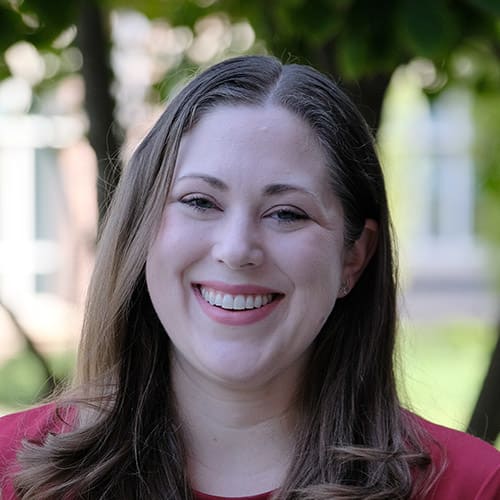
What's the Role of a Nurse in an Assisted Living Facility?

With a desire to heal, care for others, and promote wellness practices, nurses often describe their profession as more than a job: It’s their vocation, their true calling. Assisted living nurses bring their caring and compassion into assisted living communities. With varying levels of education, experience, and expertise, these nurses may have a broad or specific function in a community. They fill a variety of roles, such as assisting with the health concerns of individual residents, along with supporting the overall wellness of the community by promoting safe and healthy practices.
Is assisted living the right fit?
Let our free assessment guide you to the best senior living options, tailored to your needs.
Key Takeaways
- Nurses can play a vital role in assisted living communities. They can help promote healthy practices and maintain wellness.
- Assisted living nurses often focus on specialized care. They can be experts in public health, pain management, mental health, and more.
- Nurses in assisted living can help residents age in place. These professionals can help teach healthy habits, encourage continued independence, and assist when age, disability, or illness makes daily living a challenge.
- Services provided by nurses may cost an additional fee. It’s best to ask when touring communities how much nursing services typically cost and how the billing structure works in each community.
What are the types of assisted living nurses?
Nurses can have different levels of education, certification, and credentials that determine the role they play in assisted living. They may also specialize or have experience in a specific type of nursing or with a specific type of patient.
When you look at nursing degrees and certifications, it may feel like you’re looking at alphabet soup. However, those letters behind an assisted living nurse’s name can tell you a lot of important information.
Education levels of assisted living nurses
There are four main levels of education for nurses. These are listed in hierarchy order from least education to most education, as explained by Sarah Jividen, RN, BSN, of nurse.org:
- RN Diploma. Despite the name, this two-year diploma program is not a college degree. It prepares nurses to take the NCLEX-RN, an exam for a registered nurse (RN) license.
- Associate Degree in Nursing (ADN). This two-year degree gives a nurse a baseline level of knowledge in the profession.
- Bachelor of Science in Nursing (BSN). As a four-year degree, this gives nurses more in-depth leadership and management training and may allow them to focus on a specific specialty.
- Master of Science in Nursing (MSN). This is an advanced academic study program for nurses with a BSN. This can move nurses into elevated roles, such as public health or nursing informatics.
- Doctor of Nursing Practice (DNP). This remains the highest level of nursing education that a nurse can achieve. Those with a DNP may work in nurse management or organizational leadership positions. [01]
Generally, the more education and experience a nurse has, the more likely they’ll work in more intensive roles, highly specialized roles, or administrative roles. However, this varies by assisted living community.
Certifications and credentials
To help advance their careers, nurses can earn certifications and credentials that will appear as letters behind a nurse’s name. Knowing these from the lowest to highest credential can help you understand a nurse’s qualifications. They are as follows:
- Certified nursing assistant (CNA). In assisted living, a CNA will have passed a CNA certification test and will typically hold a state license.
- Licensed practical nurse (LPN). These professionals have passed the NCLEX-PN, a licensing exam specifically for earning the LPN certificate. Some states refer to this type of nurse as a licensed vocational nurse (LVN).
- Registered nurse (RN). Many people associate the RN certification with all nurses but don’t fully understand what it means. Holding an RN license signifies that a nurse has passed the NCLEX-RN and has earned an ADN, BSN, or RN diploma.
- Advanced practice registered nurse (APRN). This is the highest-level credential that a nurse can obtain. It typically requires an MSN or DNP, along with additional experience or coursework. [01]
There’s also a certification specific to assisted living nurses. To demonstrate their understanding of working with senior populations in assisted living environments, RNs and LPNs can take the Assisted Living Nurse Certification exam from the American Assisted Living Nurses Association.[02]

Is assisted living the right fit?
Let our free assessment guide you to the best senior living options, tailored to your needs.
What roles do assisted living nurses play?
Nurses can play a vital part in encouraging healthy practices and supporting the wellness of residents in assisted living communities. This table shows some of the many roles for nurses in assisted living, as noted by Jody Dugan of NurseJournal.[03]
| Role or specialty | Function | Responsibilities | Typical education and credential level |
|---|---|---|---|
| Certified nursing assistant | This role cares for residents under the direction of another nurse, such as an LPN or an RN. | A CNA may assist with basic medical and nonmedical activities, including taking vital signs or helping residents with daily activities. | CNA |
| Critical care nurse | An assisted living community may have a critical care nurse on staff or contract to assist critically ill residents. | A nurse in this role may monitor a resident with a serious injury or illness. | ADN or higher and active RN license |
| Director of nursing | This role typically supervises and supports the health care team within an assisted living community. | As an administrator, this role strives to maintain compliance with medical policies and procedures within the community. They may also help grow the health care team’s skills through training activities. | ADN or higher and active RN license |
| Geriatric nurse | This assisted living nurse specializes in medical care for seniors. | A geriatric nurse works to supports residents with activities and habits that help them remain independent over time. | ADN or higher and active RN license |
| Licensed practical (or vocational) nurse | This role typically works under the supervision of an RN at the assisted living community. | They may assist with advanced medical activities, including changing wound dressings or discussing health care plans with residents. | LPN or LVN |
| Long-term care nurse | As the name implies, this kind of nurse specializes in supporting people living in long-term care situations, such as nursing homes or assisted living communities. | In an assisted living atmosphere, this role works to support residents who have lost the ability to function independently. | ADN or higher and active RN license |
| Mental health nurse | This assisted living nurse works to support the mental health and wellness of residents within the community. | In this role, a nurse will help residents manage mental health conditions, such as anxiety or depression, through therapy appointments and crisis interventions when appropriate. | ADN or higher and active RN license |
| Pain management nurse | This specialized role works to use medications and therapies to reduce a resident’s pain. | This assisted living nurse works to relieve pain through activities such as spinal blocks, massage, or relaxation techniques. | ADN or higher and active RN license |
| Public health nurse (PHN) | This role focuses on the community’s health versus the health of individual residents. | A PHN in an assisted living community develops educational programs and initiatives to maintain healthy practices within the overall group. | ADN or higher and active RN license |
| Travel nurse | This role helps to fill critical gaps in nursing staff shortages. (You can think of this as being similar to a school calling in a substitute teacher.) | This is typically a temporary role. A travel nurse may fill in wherever needed within an assisted living community. Contracts can be for three-month time periods. | ADN or higher |
| Wellness nurse | This nurse focuses on teaching residents to live in a healthy manner. | At an assisted living community, this role promotes habits that support health and safety among an aging population. | LPN (LVN) or higher |
How many nurses are at the average assisted living community?
Unfortunately, there’s not an “average” assisted living community — each community determines its own staffing levels and configurations. Sometimes nurses will be on duty around the clock, and other times a nurse may visit a community on a daily or weekly basis.
Additionally, each community can decide if and how nursing activities may be incorporated into daily life for residents and staff. State laws and guidelines may guide how an assisted living community approaches its nursing practices.
Many seniors prefer to remain in one community for the length of their retirement. On-site, contract, or visiting assisted living nurses may make it easier for your loved one to age in place in an assisted living community.

Assisted living questions? Get expert help
Tell us your care needs to receive personalized guidance from our advisors.
What to ask about nurses when touring assisted living communities
When you tour communities, make sure to ask about how nursing works within their community, what nursing options are offered to residents, and what assisted living activities are offered for residents. You can also inquire about how other non-nurse caregivers support health and wellness efforts in the community.
You should also ask if additional fees apply for nursing services. Some communities may charge an a la carte fee or upcharge for these types of services within an assisted living setting.
Additionally, it’s a good idea to see if you can hire a private nurse to assist your loved one while they live in the community. Not all communities will allow this, so it’s best to be up-front.
How can I find assisted living with on-site nurses?
It can be overwhelming to navigate the search for assisted living on your own, especially when you’re looking for specific features like on-site nurses. The Senior Living Advisors at A Place for Mom can help you find assisted living options that can meet your loved one’s unique needs, all at no cost to you.
What families are saying about assisted living facilities
Assisted living reviews from residents and families
Avista Garden City
Cedarhurst of Oakwood
La Sonora at Dove Mountain
Jividen, S. (2022, June 6). Nurse level and ranks explained. nurse.org.
American Assisted Living Nurses Association. Assisted living nurse certification exam.
Dugan, J. (2022, May 11). 15 great nursing careers in assisted living settings. NurseJournal.
Assisted living in all states
The information contained on this page is for informational purposes only and is not intended to constitute medical, legal or financial advice or create a professional relationship between A Place for Mom and the reader. Always seek the advice of your health care provider, attorney or financial advisor with respect to any particular matter, and do not act or refrain from acting on the basis of anything you have read on this site. Links to third-party websites are only for the convenience of the reader; A Place for Mom does not endorse the contents of the third-party sites.
Assisted Living options tailored to your needs
Assisted Living options tailored to your needs